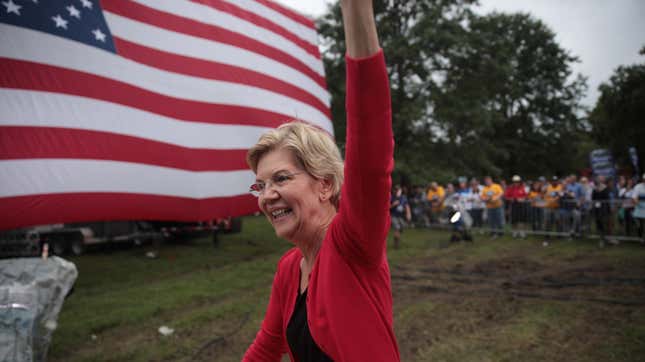
Image: Getty
At the beginning of the year, as the political press was fretting over Elizabeth Warren’s supposed charisma deficit and whether Americans would stand being “lectured to,” the media seized on her down-home tendencies. Specifically, the problem was beer drinking.
The Atlantic wrote in January:
“Hold on a sec, I’m gonna get me a beer.” With those simple words, Elizabeth Warren unleashed a wave of social-media mockery for what her critics see as a ham-handed attempt to convey down-home authenticity. Warren’s comment was made during an Instagram livestream broadcast from her family kitchen on New Year’s Eve, soon after announcing her candidacy to run for president in the 2020 Democratic primary—the first major candidate to do so.
Warren, the piece noted, isn’t the kind of person who is just gonna get her a beer: She lives in Cambridge, Massachusetts. She’s rich. She was a professor at an Ivy. But, as The Atlantic admits, “gonna get me a beer” isn’t posturing, it’s a typical speech pattern for somebody from Oklahoma. The thing about Warren that’s been irreconcilable for pundits and the political media: She may have taught at Harvard, but Warren actually is from down home. She’s both. And she’s deploying that personal story effectively.
Warren’s stump speeches are filled with personal references to the challenges of working middle-class motherhood—of finding and affording daycare and of the precariousness of it all. She’s claiming the narrative of the local girl made good, the woman who toughed it out. In politics, this story is usually trotted out by men, who want to tell you about a waitress they met in a diner in a key primary state and the homey wisdom she imparted to them. If you see it first-person, it’s more typically the stuff of country music.
-

-

-

-

-

-

-

-

-

-

-

-

-

-

-

-

-

-

-

-

-

-

-

-

-

-

-

-

-

-

-

-

-

-

-

-

-

-

-

-








































